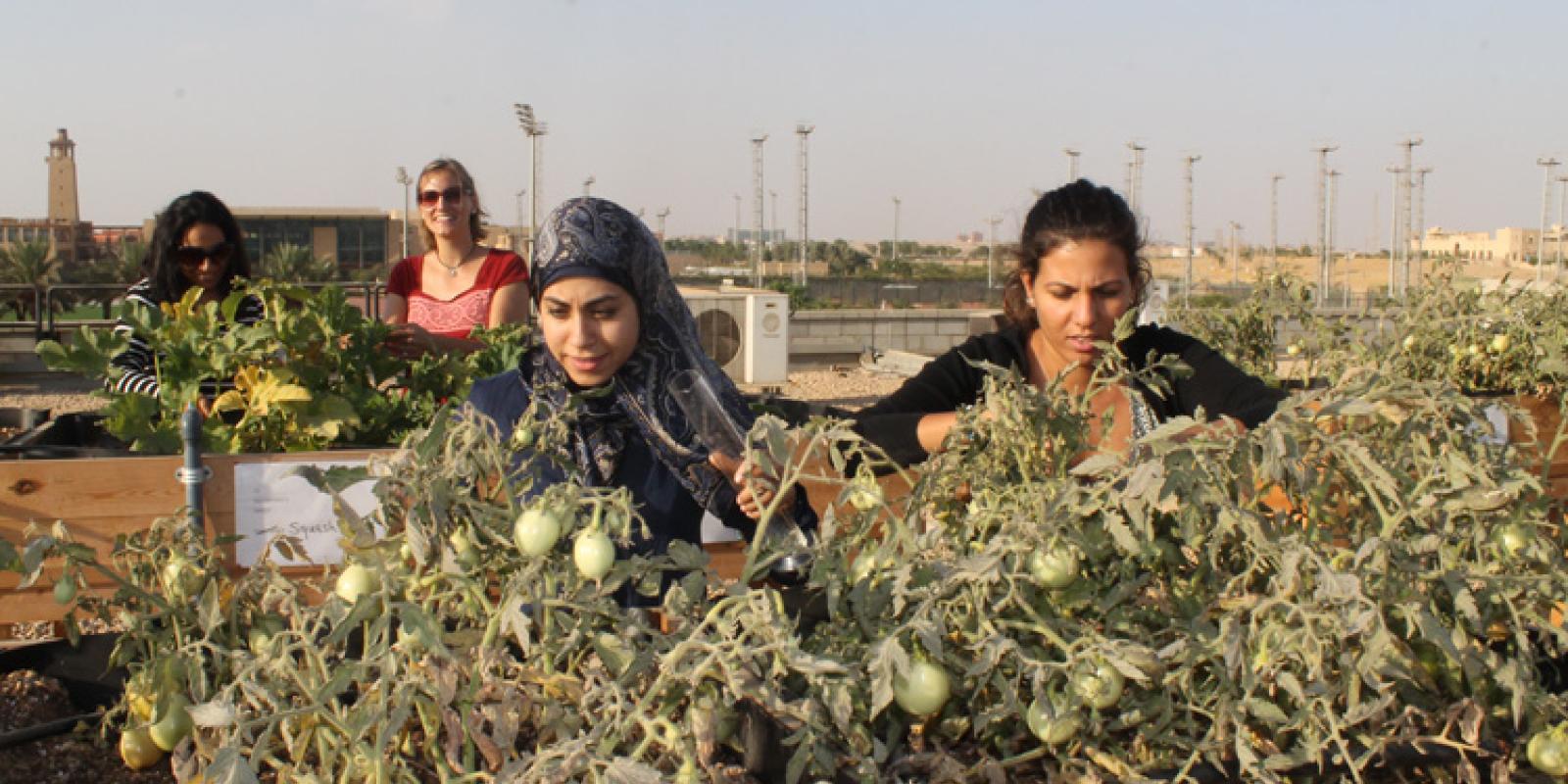
Active Student Engagement Key to Sustainable Development
Ever since the United Nations first adopted an agenda for sustainability in 1992, universities have rapidly incorporated sustainable development programs into their curricula. For this to be effective, students across disciplines must be actively engaged in a participatory, hands-on approach to sustainable development, working on meeting present needs without sacrificing the ability of future generations to meet their own needs, noted a panel of academic experts at AUC.
“I have learned during my long career in education that whenever we talk about sustainable development, we are talking about education because we need a well-educated generation to truly promote sustainable development,” said Salah Arafa, professor of physics. “It is not enough to give a good lecture, but it is important to connect what you learn at the University to communities, production, heritage and the environment. You need to transfer knowledge from where it is produced to where it is needed.”
Arafa, who was recently selected as thescientific adviser to the Sharqiya governorate and implemented a sustainable development model there, explained that AUC students learn how to implement sustainable change by volunteering in initiatives like the Basaisa project, where students, faculty and staff help create ecofriendly communities in rural villages. Through the annual Basaisa Day, held on campus in April, AUC has hosted more than 50 nongovernmental organizations from several governorates to display their handicrafts as a way to reflect Egypt’s diversity.
This practical and integrated approach to sustainable development is also being applied at other centers and programs at AUC. Andrew Petrovitch, senior research associate at the Research Institute for a Sustainable Environment (RISE), pointed out that the center’s new campus-based research model, the Living Learning Laboratory, engages students across disciplines in hands-on environmental projects at RISE’s facilities in AUC New Cairo. These projects include the maintenance of plants and vegetables on the University’s first green roof; the design of a solar roof for parking areas, as well as a solar-powered greenhouse; and the monitoring of water quality on campus. Students design, implement, adapt and teach new approaches that address issues of equity, economy and ecology through these projects. “We are creating a space for collaboration between students, staff and faculty to conduct real research at the University,” Petrovitch said.
Salah El Haggar, professor and chair of the mechanical engineering department, acknowledged that AUC has been at the forefront of incorporating sustainable development education, not only through its curricula, such as thesustainable development graduate program –– the first-of-its-kind in the region and one of few in the world –– but also through unique projects like the trash sorting stations on campus, which contain receptacles for the different kinds of trash the University produces, and a new pilot project to recycle waste. “These projects are not ways to get money; they enable students to understand ways of conserving resources,” he affirmed.
The panel discussion was jointly organized by the ninth annual Excellence in Undergraduate Research, Entrepreneurship and Creative Achievement (EURECA) conference, which brings together the AUC community and sister institutions in celebration of research and creative works at the undergraduate level, and the African Renewable Energy Alliance conference, which focuses on ways to bring about renewable energy and sustainable communities in Africa.
Photo caption: AUC's Living Learning Laboratory engages students in different sustainability research initiatives, with the New Cairo campus serving as the on-site classroom
